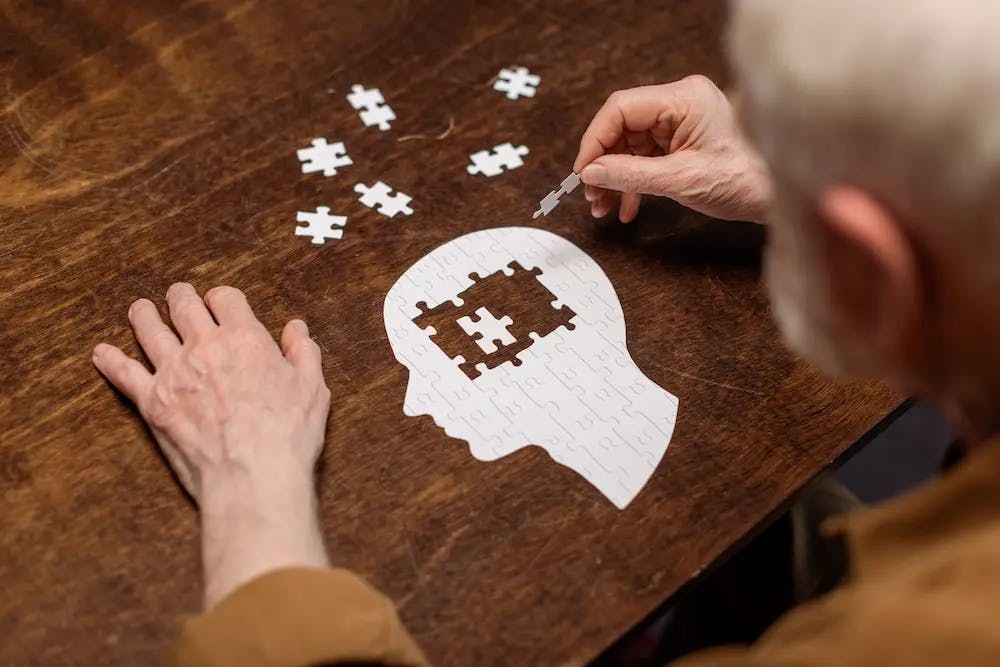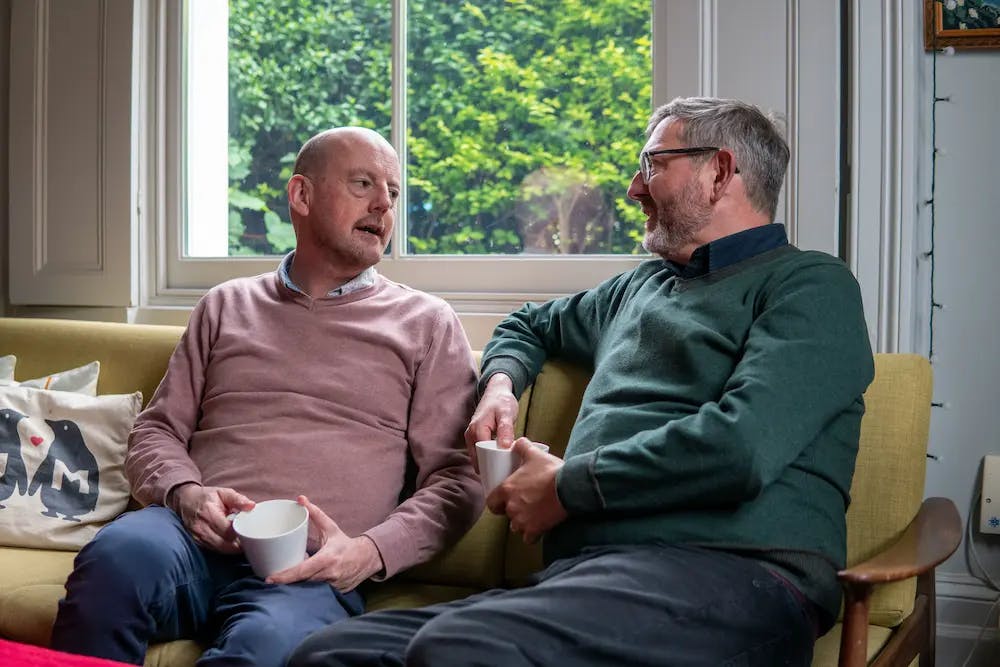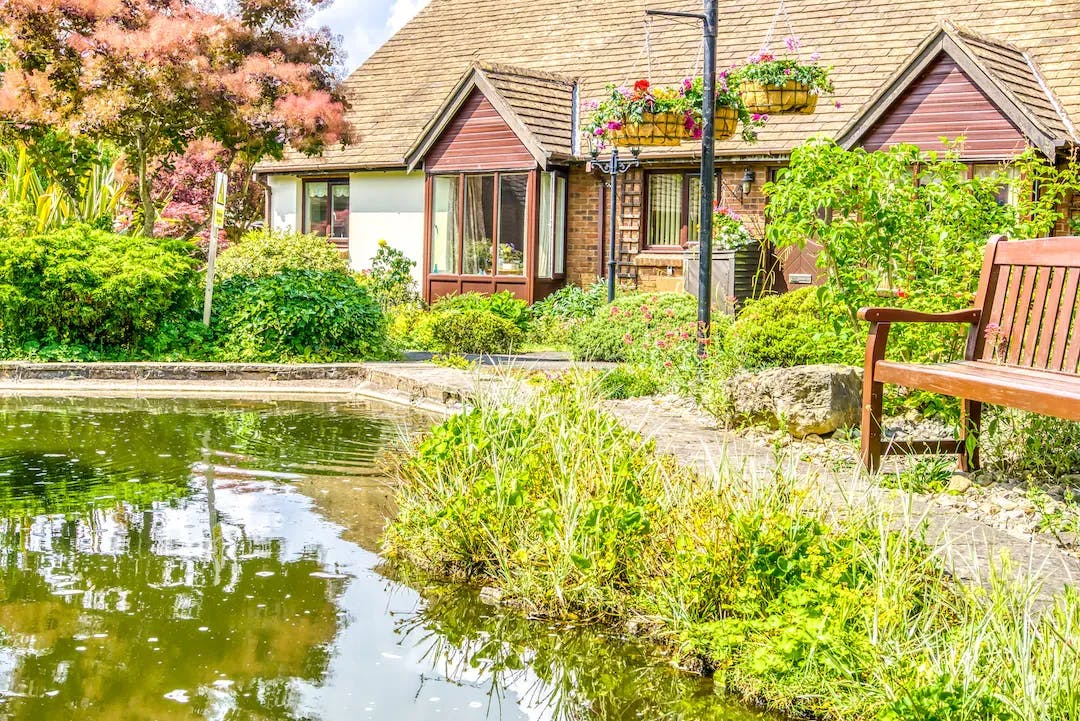The Different Stages of Dementia | Early, Middle and Late Stages

Estimated Reading Time: 6 minutes
Dementia is a progressive condition, meaning the symptoms and effects increase over time. While dementia is different for everyone, this progression can be split into a handful of stages. We’ve discussed the different stages of dementia in this article.
Need to find dementia care fast?
Browse the best dementia care homes for your loved one.
What Is Dementia?
Dementia is an umbrella term for progressive neurodegenerative diseases where your brain declines over time, including people finding it more challenging to think clearly, solve problems, remember recent or distant memories and make decisions on a daily basis.
There are lots of different types of dementia. These vary depending on which part of the brain is affected and the subsequent skills that are impacted. The most common type of dementia is Alzheimer’s.
Why does dementia have stages?
Dementia is a progressive condition, meaning the symptoms become more significant over time. If your loved one has dementia, their symptoms will likely be minimal in the beginning, but will gradually progress.
As your loved one’s dementia becomes more apparent, they’ll require more support to remain safe and continue living a fulfilled lifestyle.
This heightening of symptoms and the effects of dementia can be categorised within the stages we’ve discussed below.
The early stage of dementia can be considered mild, the middle stage can be considered moderate, and the late stage can be considered severe.
We’re here to help you find the right dementia care home for you or your loved one. You can request a free list of dementia care homes from our care experts, who will then share homes matching your budget and location. You can also search for a dementia care home through our easy-to-use directory.
The Different Stages of Dementia
Below, we’ve discussed the four stages of dementia.
According to the Alzheimer’s Association, Alzheimer’s disease accounts for between 60% and 80% of dementia cases, so these stages can be best viewed through the lens of somebody living with Alzheimer’s.
While every person with Alzheimer’s experiences it differently, there is a route that your loved one will likely follow - these being the four stages.
1. Preclinical
Preclinical Alzheimer’s disease is the newest addition to the recognised stages.
This means that there aren’t currently any criteria to diagnose Alzheimer’s disease at this stage. With that being said, research is underway that may one day allow medical professionals to spot Alzheimer’s before any symptoms are present.
During the preclinical stage, dementia and memory loss aren’t easy to detect. Your loved one will act as they usually would, including behaving in a typical way with their usual personality traits and emotions.
Preclinical Alzheimer’s can last for years before it becomes detectable. In fact, research suggests that somebody could have Alzheimer’s for as long as 18 years before it becomes noticeable.
2. Early-stage
In the early stage of Alzheimer’s disease, the person with dementia will begin to sense that their memory is ‘slipping’. People are usually diagnosed with dementia during this stage.
Although cognitive changes are still minimal, your loved one may begin to struggle with things like:
- Remembering new names and places
- Following recipes or directions
- Forgetting where they’ve placed items
Despite these changes, your loved one can usually still live and function independently during this stage of dementia.
Memory loss can be assessed within a memory clinic, with treatment options also offered.
The early stage of dementia usually lasts for around two years, but could last for as long as four years. Caring for a loved one with dementia at this stage mainly involves monitoring their overall health and helping them remember things where needed. They may sometimes need help with daily tasks as well.
3. Mid-stage
As Alzheimer’s progresses into the mid-stage, symptoms and changing behaviour will become more noticeable.
Here, a loved one with dementia will start to display changes involving their:
- Mood
- Behaviour
- Personality
- Physical limitations
During the middle stage of dementia, your loved one’s memory loss will gradually become more apparent. Habits like sleeplessness, wandering, forgetfulness and confusion may also become more common.
The mid-stage is often when people question whether their loved one can continue living safely. If it’s decided that your loved one would benefit from extra care, options include specialist memory care facilities, treatment within a dementia care home or dementia care at home.
4. Late-stage
This is the final stage of Alzheimer’s disease. Somebody living with dementia at this stage will often lose the ability to:
- Recognise people, including family members and close friends
- Understand their surroundings or where they are
- Perform basic day-to-day tasks without assistance (such as eating, getting in and out of bed, getting dressed, washing and anything else related to personal hygiene)
Generally, people experiencing late-stage dementia will need 24-hour care, making caring for a loved one at home with dementia complicated. Professional dementia care is usually required by this point, such as in a dementia care home or through care at home.
At Which Stage of Dementia Does My Loved One Require Care?
People living with mid-stage dementia usually require part-time or full-time support from a caregiver, often with daily activities. This could be at home or in a dementia care home.
People living with late-stage dementia will likely require round-the-clock care with all aspect of their life in an environment where they can remain safe, such as a dementia care home.
With that said, dementia is different for everyone, so your loved one may require professional care slightly earlier or later, depending on how their condition progresses and their personal circumstances.
Lottie matches care seekers with the best dementia care homes for their needs. You can also request a free dementia care home shortlist from our care experts, who will share homes matching your budget and location.
Frequently Asked Questions
How long does each stage of dementia last?
The World Health Organisation say that early-stage dementia lasts around two years, middle-stage dementia around two to four years and late-stage dementia around two years or less.
How long does late-stage dementia last?
Late-stage dementia is often the shortest of the four stages. It usually lasts for around two years or less. By this stage, somebody living with dementia will require round-the-clock care.




